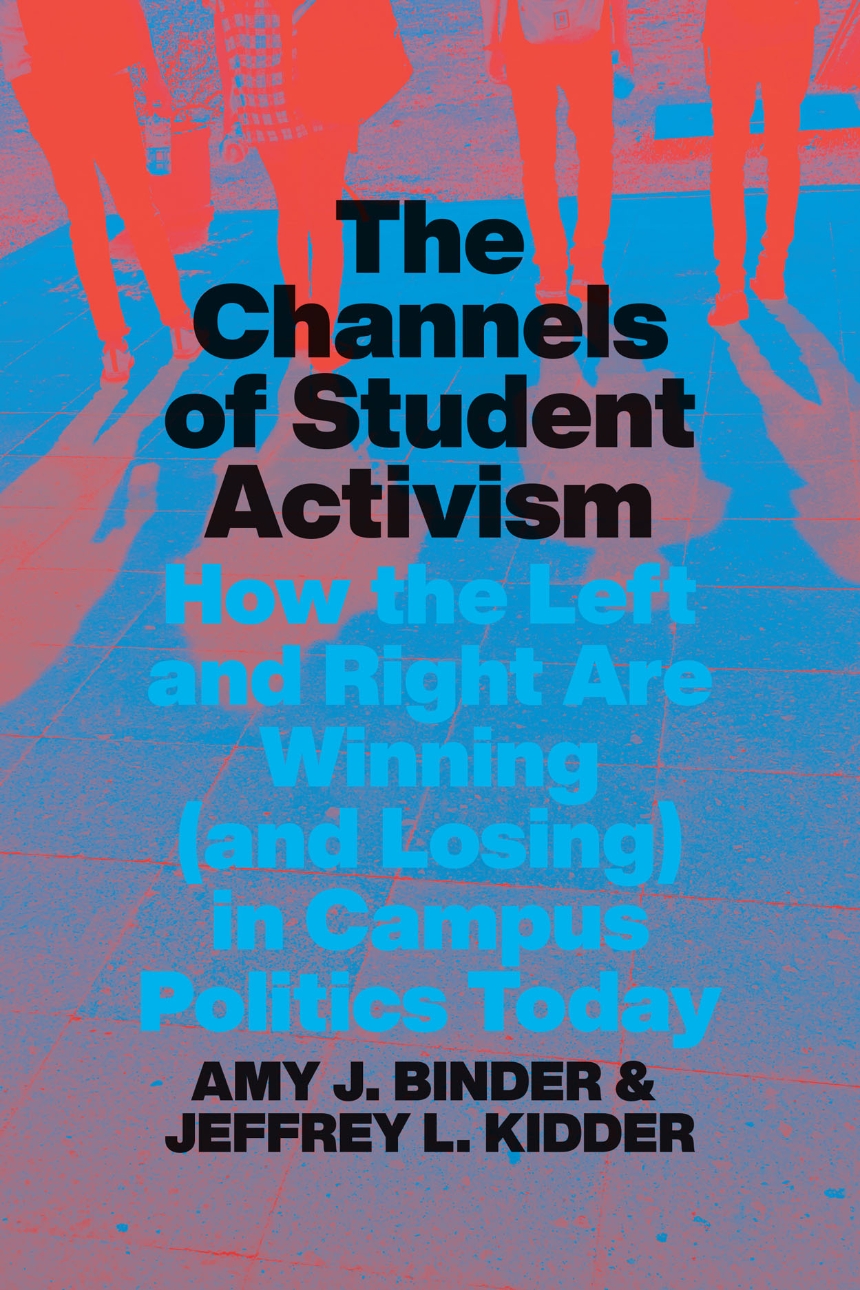The Channels of Student Activism
How the Left and Right Are Winning (and Losing) in Campus Politics Today
9780226819877
9780226684277
9780226819860
9780226831565
The Channels of Student Activism
How the Left and Right Are Winning (and Losing) in Campus Politics Today
An eye-opening analysis of collegiate activism and its effects on the divisions in contemporary American politics.
The past six years have been marked by a contentious political atmosphere that has touched every arena of public life, including higher education. Though most college campuses are considered ideologically progressive, how can it be that the right has been so successful in mobilizing young people even in these environments?
As Amy J. Binder and Jeffrey L. Kidder show in this surprising analysis of the relationship between political activism on college campuses and the broader US political landscape, while liberal students often outnumber conservatives on college campuses, liberal campus organizing remains removed from national institutions that effectively engage students after graduation. And though they are usually in the minority, conservative student groups have strong ties to national right-leaning organizations, which provide funds and expertise, as well as job opportunities and avenues for involvement after graduation. Though the left is more prominent on campus, the right has built a much more effective system for mobilizing ongoing engagement. What’s more, the conservative college ecosystem has worked to increase the number of political provocations on campus and lower the public’s trust in higher education.
In analyzing collegiate activism from the left, right, and center, The Channels of Student Activism shows exactly how politically engaged college students are channeled into two distinct forms of mobilization and why that has profound consequences for the future of American politics.
The past six years have been marked by a contentious political atmosphere that has touched every arena of public life, including higher education. Though most college campuses are considered ideologically progressive, how can it be that the right has been so successful in mobilizing young people even in these environments?
As Amy J. Binder and Jeffrey L. Kidder show in this surprising analysis of the relationship between political activism on college campuses and the broader US political landscape, while liberal students often outnumber conservatives on college campuses, liberal campus organizing remains removed from national institutions that effectively engage students after graduation. And though they are usually in the minority, conservative student groups have strong ties to national right-leaning organizations, which provide funds and expertise, as well as job opportunities and avenues for involvement after graduation. Though the left is more prominent on campus, the right has built a much more effective system for mobilizing ongoing engagement. What’s more, the conservative college ecosystem has worked to increase the number of political provocations on campus and lower the public’s trust in higher education.
In analyzing collegiate activism from the left, right, and center, The Channels of Student Activism shows exactly how politically engaged college students are channeled into two distinct forms of mobilization and why that has profound consequences for the future of American politics.
224 pages | 3 halftones, 6 tables | 6 x 9 | © 2022
Education: Education--Economics, Law, Politics, Education--General Studies, Higher Education
Political Science: Political Behavior and Public Opinion
Sociology: Social Change, Social Movements, Political Sociology
Reviews
Table of Contents
1 The Channels of Student Activism
2 Generation Z and Campus Politics (with Ellen Stolzenberg)
3 Doing Campus Politics
4 The Conservative Channel—Pulled Outside from the Right (with Zosia Sztykowski)
5 The Progressive Channel—Pushed Inside from the Left
6 The Politics of Speech on Campus
7 Genuine Openness in Polarizing Times and a Look toward the Future
Acknowledgments
Notes
References
Index
2 Generation Z and Campus Politics (with Ellen Stolzenberg)
3 Doing Campus Politics
4 The Conservative Channel—Pulled Outside from the Right (with Zosia Sztykowski)
5 The Progressive Channel—Pushed Inside from the Left
6 The Politics of Speech on Campus
7 Genuine Openness in Polarizing Times and a Look toward the Future
Acknowledgments
Notes
References
Index
